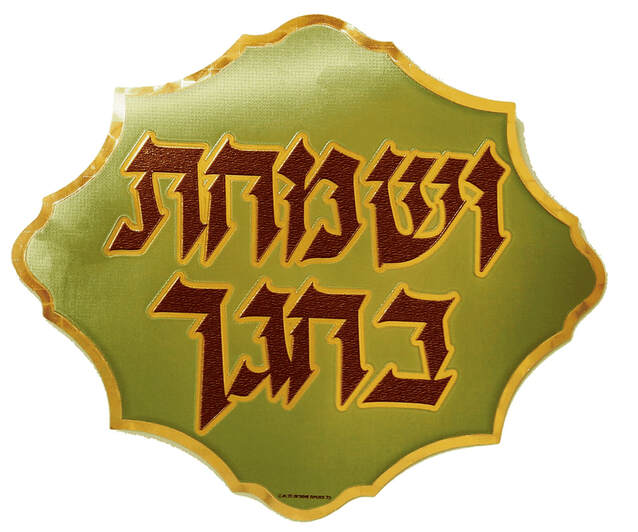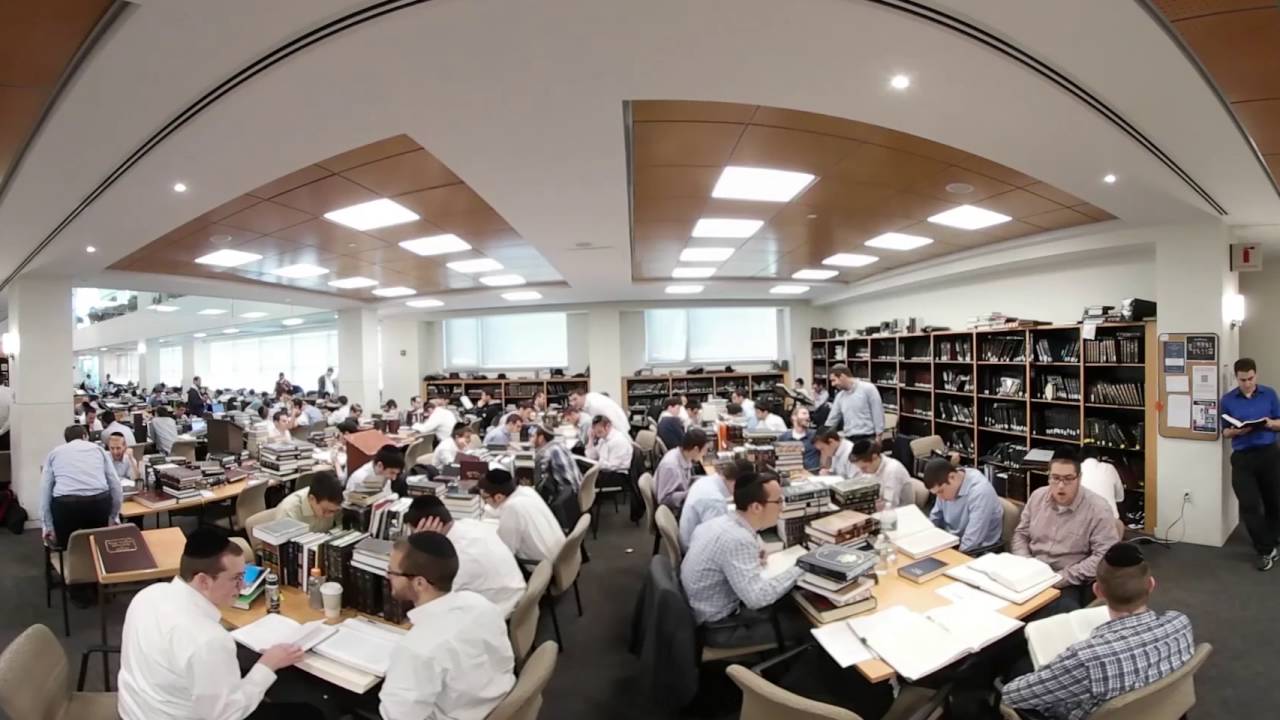 Rabbi David Etengoff Dedicated to the sacred memories of my mother, Miriam Tovah bat Aharon Hakohen, father-in-law, Levi ben Yitzhak, sister, Shulamit bat Menachem, sister-in-law, Ruchama Rivka Sondra bat Yechiel, Chana bat Shmuel, Yehonatan Binyamin ben Mordechai Meir Halevi, Shoshana Elka bat Avraham, Tikvah bat Rivka Perel, Peretz ben Chaim, Chaya Sarah bat Reb Yechezkel Shraga, Shmuel Yosef ben Reuven, Shayndel bat Mordechai Yehudah, the Kedoshim of Har Nof, Pittsburgh, and Jersey City, the refuah shlaimah of Mordechai HaLevi ben Miriam Tovah, and the health and safety of our brothers and sisters in Israel and around the world. Our parasha includes the celebrated verse: “Justice, justice you shall pursue (tzedek tzedek tirdof), that you may live and possess the land Hashem, your G-d, is giving you.” (Sefer Devarim 16:20, this and all Tanach translations, The Judaica Press Complete Tanach, with my emendations) As this commandment is given to the entire Jewish people, we must have a shared understanding as to what the term tzedek means. Fortunately, in his Aramaic elucidation of the Torah, Onkelos (35-120 CE) helps us find just such common ground. He interprets tzedek tzedek tirdof as, kushta kushta hevai radif (“Truth, truth you shall pursue.”) This explanation is buttressed in two pasukim in Sefer Tehillim wherein “justice” and “truth” appear in juxtaposition: He who walks uprightly and works justice (tzedek) and speaks truth (emet) in his heart. (15:2) And your glory is that you will pass and ride for the sake of truth (emet) and just (tzedek) humility, and it shall instruct you so that your right hand shall perform awesome things. (45:5) Onkelos’ penetrating insight into the authentic nature of tzedek, reveals that it is inseparable from emet: That which is just, is that which is true. Why, did the Torah deem it necessary to repeat the word tzedek, when it appears “tzedek tirdof—you should pursue justice” would have been sufficient? In his Commentary on the Torah on our pasuk, the Ibn Ezra (c. 1089-1092 to c. 1164-1167) offers the following multi-level answer: The reason [why the Torah states] “tzedek” twice [in our verse, is three-fold in nature]: [Regardless] as to whether you benefit or suffer a loss [from pursuing tzedek, you must unhesitatingly do so]; another reason for this repetition is [to teach us] that [achieving] tzedek is a lifelong quest; then, too, it is to strengthen our resolve [to make tzedek the touchstone of our lives]. (Translation and brackets my own) The Ibn Ezra interprets the repetition of tzedek as a charge to individuals, in the sense that it must be our unfailing objective no matter how we may be affected on a practical level. Moreover, in his view, we must realize that in order to make tzedek an intrinsic part of our lives, we must ever be vigilant. Closer to our own time, in his Commentary on the Torah on our verse, Rabbeinu Shimshon Raphael Hirsch (1808-1888) expands upon the Ibn Ezra’s position and views the repetition of tzedek as the Torah’s attempt to shape the behavior of the entire Jewish people, both on the individual and national level: Justice should be the highest and singular goal of the entire nation. Moreover, one ought to aspire for justice in and of itself. All other considerations must be subordinated to achieve this purpose. Justice is that which shapes all connections and attachments of the individual and the community in order to conform to the requirements of Hashem’s Torah. The role of a Jewish individual is to pursue that which is just in an unceasing manner coupled with complete dedication. (Translation and underlining my own from the Hebrew edition of the German text) This concept has been part of Jewish consciousness for centuries. As Yeshayahu the prophet declared so long ago: “And I [Hashem] will restore your judges as at first and your counselors as in the beginning; afterwards you shall be called City of Righteousness (ihr hatzedek), Faithful City. Tzion shall be redeemed through justice and those who return unto her through righteousness (bitzdakah).” (1:26-27) With Hashem’s help and our fervent desire, may this time come soon and in our days, v’chane yihi ratzon. Shabbat Shalom Past drashot may be found at my blog-website: http://reparashathashavuah.org. Please contact me at [email protected] to be added to my weekly email list. *** My audio shiurim on the topics of Tefilah and Tanach may be found at: http://tinyurl.com/8hsdpyd *** I have posted 164 of Rabbi Soloveitchik’s English language audio shiurim (MP3 format) spanning the years 1958-1984. Please click on the highlighted link: The Rav
0 Comments
 Image: Nirit Logan ושמחת בחגך מוזהב - נירית לגן (ngan.co.il) Rabbi David Etengoff Dedicated to the sacred memories of my mother, Miriam Tovah bat Aharon Hakohen, father-in-law, Levi ben Yitzhak, sister, Shulamit bat Menachem, sister-in-law, Ruchama Rivka Sondra bat Yechiel, Chana bat Shmuel, Yehonatan Binyamin ben Mordechai Meir Halevi, Shoshana Elka bat Avraham, Tikvah bat Rivka Perel, Peretz ben Chaim, Chaya Sarah bat Reb Yechezkel Shraga, Shmuel Yosef ben Reuven, Shayndel bat Mordechai Yehudah, the Kedoshim of Har Nof, Pittsburgh, and Jersey City, the refuah shlaimah of Mordechai HaLevi ben Miriam Tovah, and the health and safety of our brothers and sisters in Israel and around the world. The concluding section of our parasha focuses on the moadim (festivals) that we encounter throughout the year. Herein, we are met with two pasukim, the first in reference to Shavuot and the second in reference to Succot, that contain very similar terminology: And you shall rejoice before Hashem, Elokecha, you, and your son, and your daughter, and your manservant, and your maidservant, and the Levite who is within your cities, and the stranger, and the orphan, and the widow, who are among you, in the place which Hashem, Elokecha, will choose to establish His Name therein. (Sefer Devarim 16:11, this and all Tanach translations, The Judaica Press Complete Tanach with my emendations) And you shall rejoice in your Festival, you, and your son, and your daughter, and your manservant, and your maidservant, and the Levite, and the stranger, and the orphan, and the widow, who are within your cities. (Sefer Devarim 16:14) A careful reading of these verses reveals two groups differentiated by the terms, “your” and “the,” respectively; your son, your daughter, your manservant, and your maidservant (personal); and the Levite, the stranger, the orphan, and the widow (public). In both instances, we are obligated to provide for the festival needs of these individuals, to ensure that they, no less than we, will celebrate yom tov with true joy (simcha). The Torah’s emphasis on these two classes of people is expanded upon in the Midrash Yalkut Shimoni 897:6: Rabbi Lulinos of Rome in the name of Rabbi Yehudah bar Siman said, “The Holy One blessed be He said: ‘You [the Jewish people] have four b’nai bayit (family members), namely, bincha, bitecha, v’avdecha v’amatecha (your son, your daughter, your manservant, and your maidservant), and I, too, have four b’nai bayit: halevi, hager, v’hayatom, v’ha’almanah (the Levite, the stranger, the orphan, and the widow); and they are all found in one verse: “And you shall rejoice in your Festival, you, and your son, and your daughter, and your manservant, and your maidservant, and the Levite, and the stranger, and the orphan, and the widow, who are within your cities.’” (Sefer Devarim 16:14, this and the following midrash translation and brackets my own) Just as we are joined by our b’nai bayit, that is, our extended family, in rejoicing on the yom tovim, so, too, is Hashem joined by His b’nai bayit, the Levite, stranger, orphan, and widow. The midrash continues stressing the reward we will receive when we fulfill this mitzvah: The Holy One blessed be He said: “I have told you to help that which is Mine and that which is yours to rejoice on the yamim tovim that I have given you. If you have done this, then I, too, will enable that which is Mine and that which is yours to rejoice. For in the future, I will help both to rejoice in My Chosen House (beit habechirah) … It is crucial to understand that ministering to the needs of the down-trodden in society on the yom tovim is more than a midrashic ideal; it is a halachic imperative. As the Rambam (Maimonides, 1135-1204) states: When a person eats and drinks [in celebration of a yom tov day], he is obligated to feed converts, orphans, widows, and others who are destitute and poor. In contrast, a person who locks the gates of his courtyard and eats and drinks with his children and his wife, without feeding the poor and the embittered, is [not indulging in] rejoicing associated with a mitzvah, but rather the rejoicing of his belly. (Mishneh Torah, Hilchot Yom Tov 6:18, translation, Rabbi Eliyahu Touger with my emendations) With Hashem’s help and our fervent desire, may we strive to fulfill this mitzvah and witness the realization of Hashem’s promise soon, and in our time. As Yeshayahu the prophet declares (56:7), “I will bring them to My holy mount, and I will cause them to rejoice in My house of prayer… for My house shall be called a house of prayer for all peoples.” V’chane yihi ratzon. Shabbat Shalom Past drashot may be found at my blog-website: http://reparashathashavuah.org. Please contact me at [email protected] to be added to my weekly email list. *** My audio shiurim on the topics of Tefilah and Tanach may be found at: http://tinyurl.com/8hsdpyd *** I have posted 164 of Rabbi Soloveitchik’s English language audio shiurim (MP3 format) spanning the years 1958-1984. Please click on the highlighted link: The Rav  Rabbi David Etengoff Dedicated to the sacred memories of my mother, Miriam Tovah bat Aharon Hakohen, father-in-law, Levi ben Yitzhak, sister, Shulamit bat Menachem, sister-in-law, Ruchama Rivka Sondra bat Yechiel, Chana bat Shmuel, Yehonatan Binyamin ben Mordechai Meir Halevi, Shoshana Elka bat Avraham, Tikvah bat Rivka Perel, Peretz ben Chaim, Chaya Sarah bat Reb Yechezkel Shraga, Shmuel Yosef ben Reuven, Shayndel bat Mordechai Yehudah, the Kedoshim of Har Nof, Pittsburgh, and Jersey City, the refuah shlaimah of Mordechai HaLevi ben Miriam Tovah, and the health and safety of our brothers and sisters in Israel and around the world. The first pasuk in our parasha contains the well-known phrase, “v’haya eikev tishm’un eit hamishpatim ha’aleh.” There are a variety of classical approaches regarding its translation and interpretation. Onkelos (1st Century CE) suggests, “And it will be in exchange [that is, a quid pro quo] if you accept these laws.” In contrast, Rashi (1040-1105) maintains the phrase refers to a specific set of laws, “If you will heed the minor commandments which one [usually] tramples with their heels [that is, which a person treats as being of minor importance].” (Translation, The Judaica Press Complete Tanach). The Ibn Ezra (c. 1089-1092 until c. 1164-1167) asserts that eikev refers to schar b’achronah. As such, he would translate our expression as, “And it will be that the ultimate reward will accrue to you if you hearken to these laws.” Closer to our own time, the Netziv (Rav Naftali Tzvi Yehudah Berlin (1816-1893) takes a very different tack, explaining v’haya eikev tishm’un eit hamishpatim ha’aleh as referencing deep-level Torah analysis (sh’yachkaru ba’Torah). He would, therefore, translate this phrase as, “And it will be if you engage in deep-level Torah study.” He focuses on the word tishm’un, as the source of his unique interpretation, noting that it is spelled with a grammatically unnecessary letter nun. This is quite significant, since the nine other times the word, tishm’u, appears in Chamishah Chumshei Torah it is without the letter nun. In the Netziv’s opinion, the nun comes l’haktin, to make smaller or delimit. As he explains, its purpose is to inform us: … that not everyone within the Jewish people could possibly have been involved in intensive Torah study [at this historical moment,] since the [vast majority] were involved in war [and all it entailed]. Nonetheless, it was necessary for there to be people engaged in Talmud Torah [as this mitzvah was as significant as the actual fighting itself]. (Translation and brackets my own, in addition, see the Netziv’s gloss on Sefer Devarim, 33:18) As the Netziv makes clear in his subsequent glosses on our phrase, such intensive Torah study will lead directly to Hashem’s fulfillment of His promise to bestow chesed and brachot upon the Jewish people. As the Torah states: … the L-rd, your G-d, will keep for you the covenant and the kindness that He swore to your forefathers. And He will love you and bless you and multiply you; He will bless the fruit of your womb and the fruit of your soil, your grain, your wine, and your oil, the offspring of your cattle and the choice of your flocks, in the land which He swore to your forefathers to give you. You shall be blessed above all peoples: There will be no sterile male or barren female among you or among your livestock. And the L-rd will remove from you all illness, and all of the evil diseases of Egypt which you knew, He will not set upon you… (Sefer Devarim 7:12-15, translation, The Judaica Press Complete Tanach) May we witness the complete realization of this promise soon, and in our days. V’chane yihi ratzon. Shabbat Shalom Past drashot may be found at my blog-website: http://reparashathashavuah.org. Please contact me at [email protected] to be added to my weekly email list. *** My audio shiurim on the topics of Tefilah and Tanach may be found at: http://tinyurl.com/8hsdpyd *** I have posted 164 of Rabbi Soloveitchik’s English language audio shiurim (MP3 format) spanning the years 1958-1984. Please click on the highlighted link: The Rav  Rabbi David Etengoff Dedicated to the sacred memories of my mother, Miriam Tovah bat Aharon Hakohen, father-in-law, Levi ben Yitzhak, sister, Shulamit bat Menachem, sister-in-law, Ruchama Rivka Sondra bat Yechiel, Chana bat Shmuel, Yehonatan Binyamin ben Mordechai Meir Halevi, Shoshana Elka bat Avraham, Tikvah bat Rivka Perel, Peretz ben Chaim, Chaya Sarah bat Reb Yechezkel Shraga, Shmuel Yosef ben Reuven, Shayndel bat Mordechai Yehudah, the Kedoshim of Har Nof, Pittsburgh, and Jersey City, the refuah shlaimah of Mordechai HaLevi ben Miriam Tovah, and the health and safety of our brothers and sisters in Israel and around the world. Our parasha is a continuation of Moshe’s farewell address to the Jewish people. It begins with the words, “Va’etchanan (and I entreated) Hashem at that time...” (Sefer Devarim 3:23, this and all Tanach translations, The Judaica Press Complete Tanach, with my emendations) As noted in Midrash Sifrei Devarim on our pasuk, va’etchanan is one of the expressions of tefilah in Tanach. Though this, and countless other acts of tefilah are found throughout Tanach, the efficacy of prayer, in general, remains an authentic mystery. The problem is straightforward: How can finite man communicate with the infinite Creator? This difficulty is alluded to in Talmud Yerushalmi, Berachot 1:9: Levi said: “The distance from the earth until the firmament would take 500 years for a man to traverse. The distance from each firmament to the next [of which there are seven] is 500 years as well. Moreover, the thickness of each firmament is a five-hundred-year journey and so, too, for each and every firmament.” Look how removed Hashem is from His world and [nonetheless] a man enters the synagogue, stands behind the prayer stand, silently prays and Hashem listens to his prayer! (Translation my own) Why does the Almighty listen to our tefilot? This is one of the most spiritually significant questions we can ask, as it speaks to the essence of our relationship with Hashem. My rebbi and mentor, Rabbi Joseph B. Soloveitchik zatzal (1903-1993), known as “the Rav” by his students and followers, wrestled with this issue on numerous occasions. Initially, one might think that Hashem listens to our prayers because of zechut Avot (the merit of the Patriarchs). Based on Talmud Bavli, Shabbat 55a, however, the Rav notes that during the time of Yechezkel the prophet (sixth century BCE), zechut Avot ceased to exist. In his view, the merit of the Avot could extend only so far, since, after many generations, we had radically distanced ourselves from the standards of behavior established by Avraham, Yitzchak and Ya’akov. As a result, Hashem no longer viewed us as fitting recipients of their extended merit. (This, and the following material, based upon Rabbi Joseph B. Soloveitchik’s posthumous work, The Lord is Righteous in All His Ways: Reflections on the Tisha be-Av Kinot, pages 51-56.) If we no longer have zechut Avot, why does Hashem continue to listen to our tefilot? The Rav responded to this question by citing Rabbeinu Tam’s (1100-1171) seminal comment: “Zechut Avot tamah, aval brit Avot lo tamah” (Talmud Bavli, Shabbat 55a, s.v. u-Shmuel), meaning, even though zechut Avot is no longer operable, we will always have brit Avot (the Covenant of the Patriarchs). In contradistinction to zechut Avot, brit Avot is not contingent upon our actions. Instead, the Rav asserts, it is an unconditional legal agreement that cannot be annulled. It represents Hashem’s promise to us that, no matter how far we may stray, we are forever the heirs of Avraham, Yitzchak and Ya’akov. For Hashem, we will always be Knesset Yisrael, the mystical trans-historical entity that began with our forebears at Mount Sinai. Therefore, since each of us is an essential component of Knesset Yisrael, we can be assured the Almighty will listen to our prayers when they are uttered in an earnest and heartfelt fashion. As we say in Ashrei, “Hashem is near to all who call Him, to all who call Him with sincerity” (Sefer Tehillim 145:18). The Rav’s analysis enables us to better appreciate the Shemoneh Esrai’s phrase, “Shema koleinu Hashem Elokeinu” (“Hear our voice Hashem our G-d”). Understanding that the brit Avot guarantees our tefilot will be heard le’olam vo’ed (for all eternity), allows us to utter these words with new confidence. May this promise inspire us to encounter the Almighty through our tefilot as we strive to move closer to Him. V’chane yihi ratzon. Shabbat Shalom Past drashot may be found at my blog-website: http://reparashathashavuah.org. Please contact me at [email protected] to be added to my weekly email list. *** My audio shiurim on the topics of Tefilah and Tanach may be found at: http://tinyurl.com/8hsdpyd *** I have posted 164 of Rabbi Soloveitchik’s English language audio shiurim (MP3 format) spanning the years 1958-1984. Please click on the highlighted link: The Rav |
Details
Archives
July 2024
AuthorTalmid of Rabbi Soloveitchik zatzal Categories |
- Blog: Rabbi David Etengoff: Parashat HaShavuah
- Sefer Bereishit 5784&5785
- Sefer Shemot 5784&5785
- Sefer Vayikra 5784&5785
- Sefer Bamidbar 5784 &5785
- Sefer Bereishit 5782&5783
- Sefer Shemot 5782&5783
- Sefer Vayikra 5782&5783
- Sefer Bamidbar 5782&5783
- Sefer Devarim 5782&5783
- Sefer Bereishit 5780& 5781
- Sefer Shemot 5780&5781
- Sefer Vayikra 5780&5781
- Sefer Bamidbar 578&5781
- Sefer Devarim 578&5781
- Sefer Bereishit 5778&5779
- Sefer Shemot 5778&5779
- Sefer Vayikra 5778&5779
- Sefer Bamidbar 5778&5779
- Sefer Devarim 5778&5779
- Sefer Bereishit 5776&5777
- Sefer Bereishit 5774&5775
- Sefer Bereishit 5772&5773
- Sefer Bereishit 5771&5770
- Sefer Shemot 5776&5777
- Sefer Shemot 5774&5775
- Sefer Shemot 5772&5773
- Sefer Shemot 5771&5770
- Sefer Vayikra 5776&5777
- Sefer Vayikra 5774&5775
- Sefer Vayikra 5772&5773
- Sefer Vayikra 5771&5770
- Sefer Bamidbar 5776&5777
- Sefer Bamidbar 5774&5775
- Sefer Bamidbar 5772&5773
- Sefer Bamidbar 5771&5770
- Sefer Devarim 5776&5777
- Sefer Devarim 5774&5775
- Sefer Devarim 5772&5773
- Sefer Devarim 5771&5770
 RSS Feed
RSS Feed
